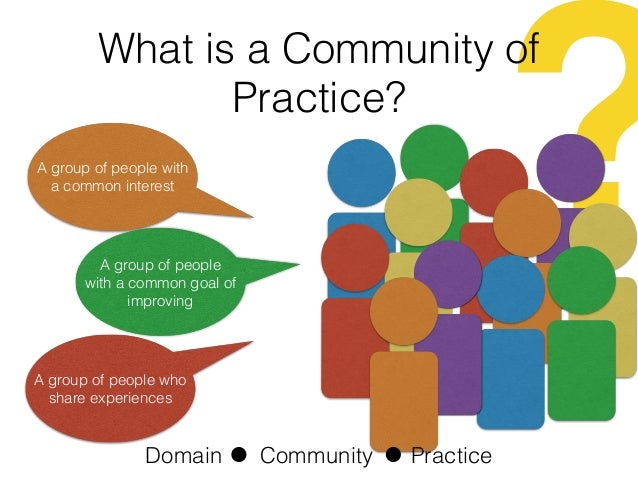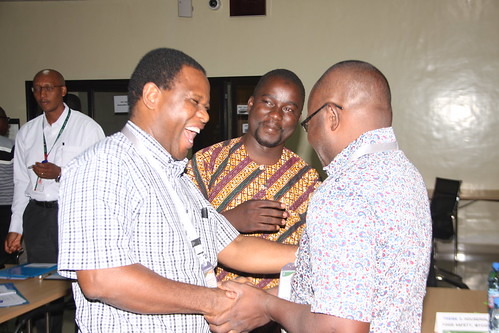Africa RISING aims to move from common conversations to communities of practice
One of the main ‘program-wide’ changes in the second phase of Africa RISING is to introduce ‘communities of practice’ (CoPs). Five initial pilot CoPs were officially launched at the first ‘Science for impact workshop’ of Africa RISING in Dar es Salaam, Tanzania between 17 and 19 January 2017.
This effort recognizes that more effort is needed to bring together scientists from all three regions (East and Southern Africa, Ethiopian Highlands, West Africa). The pilot communities of practice will be around five initial themes:
- Socio-economic assessment of technological innovations
- Nutrition
- Private sector engagement for better linkages of farmers to input and output markets
- Livestock intensification and integration
- Translating research outputs into scaled innovation
The potential and appetite is there, the main challenges remain the ongoing facilitation of these (and other) CoPs and most crucially the ‘communication/sharing’ behaviour (or lack thereof) of people across the three regions.
A whole session was dedicated to CoPs at the science meeting, and all participants were later invited to join either of these five CoPs. As phase two is just in its infancy, it becomes quite useful to revisit this choice for communities of practice and what it entails…
What are communities of practice?
According to Etienne Wenger, who coined the term ‘communities of practice’:
“Communities of practice are formed by people who engage in a process of collective learning in a shared domain of human endeavor: a tribe learning to survive, a band of artists seeking new forms of expression, a group of engineers working on similar problems, a clique of pupils defining their identity in the school, a network of surgeons exploring novel techniques, a gathering of first-time managers helping each other cope. In a nutshell: Communities of practice are groups of people who share a concern or a passion for something they do and learn how to do it better as they interact regularly.”

According to a very useful flyer on CoPs published by the Swiss Development Cooperation (SDC), a community of practice ideaally combines six elements:
- A community – which binds people by their interest in the focus of the CoP.
- A domain – A thematic orientation that is large enough to interest various people without being so broad that it means nothing to no one.
- A practice – This is the essential feature of CoPs, it’s not just about conceptual discussions but crucially about how to improve the way we do our work in a given field of practice.
- Motivation – This is what makes or breaks a CoP, because CoP activities are typically beyond the normal working hours and outside of formal work plans. Motivation and enthusiasm are essential for them to thrive.
- A mandate – The community (especially if backed by an organization or by a program such as Africa RISING) needs to have thought about the importance of having a CoP. That mandate is what provides a space for members’ commitment too.
- A structure – That structure is not hierarchical and usually revolves around a very tiny ‘steering’ group, a larger circle of active members, and then the majority of people who end up observing and only very occasionally reacting.
These principles just explain the mechanics of CoPs, not the specific focus they are going to take in Africa RISING.
Why these five communities of practice in Africa RISING?
Bernard Vanlauwe (IITA) and colleagues developed a quick concept note to outline the rationale of each of the five CoPs identified in the program. All five topics have been identified as gaps from phase 1 – gaps that simply cannot be ignored. The mandate of these CoPs is thus very clear from the program management perspective.
Socio-economic assessment of technological innovations. Not all regions had even one socio-economic expert in phase 1, and there is a clear need to understand the economic feasibility and market potential of the technological innovations that the program promotes. This CoP is invited to provide common methodologies for economic analysis and to discuss how to best ensure that Africa RISING technologies are socially and economically viable in the longer run.
Nutrition has always been central to Feed the Future and so it logically features highly on this list. This CoP has a mandate to make more unified sense of the nutrition work done across all program regions, and to prepare the way to make nutrition results comparable across these. And it seems the upcoming replacement for Feed the Future is going to focus even more strongly on nutrition.
Private sector engagement for better linkages of farmers to input and output markets. Private sector engagement has just begun in phase 1. However, scaling up and out requires, among others, the participation of private sector actors and entrepreneurs. Whether around seeds, fertilizers, mechanization equipment, feeds etc. there are many opportunities for this CoP to unpack how to best engage this non traditional partner of CGIAR.
Livestock intensification and integration. Livestock are key in integrating technologies in a ‘sustainable intensification’ (SI) manner, but livestock work was not well-connected in phase 1. In this phase, the suggested community of practice will identify suitable livestock species in various dryland and humid tropic contexts, to strengthen SI approaches, and improve gender equity. The external review strongly recommended working on this aspect. It is now becoming more of a reality.
Translating research outputs into scaled innovation. The final community of practice arguably concerns everyone around Africa RISING and is all about better understanding different scaling mechanisms tried and tested throughout the program, teasing out lessons, insights and recommendations for how to improve this as the program moves along. It will have to draw upon the other CoPs too.

During the science meeting, Vanlauwe stressed there were already two or three natural ‘communities of practice’ that existed in phase 1 around: a) Monitoring and evaluation, b) communication and knowledge management, and c) gender. These will continue, as they operate now.
However, various participants in the CoP session asked whether it was ok to suggest other CoPs such as integrated watershed management and virtual farming.
The program coordination team (PCT) which held a meeting directly after the Science for impact workshop, discussed these possible new CoPs and stated that while no financial support could be expected for these – at least until an evaluation has taken place about the five starting CoPs – there was no problem in kick-starting other CoPs.
Practical steps forward
Towards the closing of the workshop, a quick session came back to the communities of practice and mentioned some very practical steps to make these plans more of a reality: After the initial signing up for one or various CoPs by the participants, other Africa RISING people will be invited to join – once the channel that will be used to organize the (online) conversations has been agreed. The communication team will provide facilitation support to help the COPs materialize; the CoP champions (tentatively identified by the program management and in agreement with the suggested people) will be invited to refine the scope and terms of reference of each of their CoPs as well as to identify some initial activities/conversations to get started with engaging members. Finally, there is an agreement that it would be good to have a ‘CoP of CoPs’ mechanism so that the facilitators can exchange and learn among themselves.
Watch this space!





Latest Comments